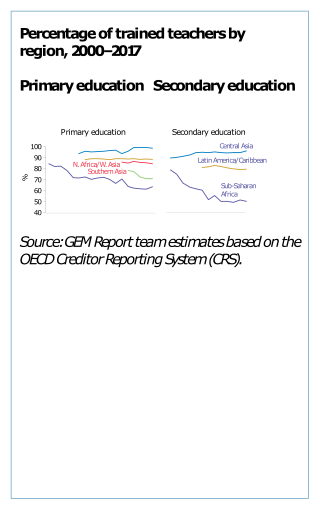
A teacher, also called a schoolteacher or formally an educator, is a person who helps students to acquire knowledge, competence, or virtue, via the practice of teaching.
Legal ethics are principles of conduct that members of the legal profession are expected to observe in their practice. They are an outgrowth of the development of the legal profession itself.
Sexual misconduct is misconduct of a sexual nature which exists on a spectrum that may include a broad range of sexual behaviors considered unwelcome. This includes conduct considered inappropriate on an individual or societal basis of morality, sexual harassment and/or criminal sexual assault.

Professional ethics encompass the personal and corporate standards of behavior expected of professionals.

The South African Institute of Chartered Accountants (SAICA), South Africa’s pre-eminent accountancy body, is widely recognised as one of the world’s leading accounting institutes. The institute provides a wide range of support services to more than 48,000 members and associates who are chartered accountants (CAs(SA)), as well as associate general accountants (AGAs(SA)) and accounting technicians (ATs(SA)).

Teacher education or teacher training refers to programs, policies, procedures, and provision designed to equip (prospective) teachers with the knowledge, attitudes, behaviors, approaches, methodologies and skills they require to perform their tasks effectively in the classroom, school, and wider community. The professionals who engage in training the prospective teachers are called teacher educators.
The General Teaching Council for Scotland is a fee based registered charity and the world's first independent registration and regulation body for teaching. The current Chief Executive and Registrar is Pauline Stephen. The GTC Scotland maintains a register of qualified teachers and college lecturers; there were 80,695 teachers and college lecturers on the register on 31 March 2022.

The General Teaching Council for England (GTCE) was the professional body for teaching in England between 2000 and 2012. The GTC was established by the Teaching and Higher Education Act 1998 which set two aims: "to contribute to improving standards of teaching and the quality of learning, and to maintain and improve standards of professional conduct among teachers, in the interests of the public". The GTC was abolished in 2012 with some of its functions being assumed by the Teaching Agency, an executive agency of the Department for Education, which in 2013 became the National College for Teaching and Leadership.
Florida Teacher Certification Examinations (FTCE) are standardized tests used to assess the competencies of prospective teachers according to Florida's Sunshine State Standards. FTCE refers to 47 different exams: four General Knowledge sub-tests, one Professional Education exam, and 42 Subject Area examinations.
An urban planner is a professional who practices in the field of town planning, urban planning or city planning.
The Engineering Council of South Africa (ECSA) is the statutory body for engineering profession in South Africa. Its functions are to accredit the engineering programs and to register the engineering professionals in specified categories throughout the country.

The Ontario College of Teachers is the regulatory college for the teaching profession in Ontario and is the largest self-regulatory body in Canada. It was established on 20 May 1997. The college's mandate is to license, govern and regulate the practice of teaching. It is also responsible for developing standards of teaching practice, regulating ongoing teacher certification and professional development, and accrediting teacher education programs. The College of Teachers also has the responsibility to investigate claims of misconduct made against teachers. The Ontario College of Teachers is also mandated to communicate with the public on behalf of the profession, which it does primarily through its website.
Professional conduct is the field of regulation of members of professional bodies, either acting under statutory or contractual powers.

The Council of Architecture is a statutory body constituted by the Government of India under the provisions of the Architects Act, 1972, enacted by the Parliament of India, which came into force on 1 September 1972.
The Korean Federation of Teachers' Associations is the largest and most traditional professional organization and teachers' union in South Korea, with more than 120,000 members. It means 30% of the Korean educators are KFTA's members. The KFTA member is composed of school teachers, college professors, and perspective teachers.
The organization was first launched in 1947 as the Chosun Education Association one year before the establishment of the Korean government. Ever since then, the organization's main objectives are to accomplish quality public education and teacher's professionalism.
Communication ethics is a sub-branch of moral philosophy pertaining to the understanding of manifestations of communicative interaction.
In South Africa the Department of Public Enterprises is the shareholder representative of the South African Government with oversight responsibility for state-owned enterprises in key sectors. Some companies are not directly controlled by the Department of Public Enterprises, but by various other departments. Further, not all state owned entities are registered as companies.
The Librarians' Registration Council of Nigeria (LRCN) was established as a parastatal under the Federal Ministry of Education by Act 12/Decree 12 of 1995 by the Nigerian government. The Council is responsible for providing leadership in the field of librarianship by regulating education for library and information science and its practice in Nigeria.

The The South African Council for Educators (SACE) Act 31 of 2000, is a legislation enacted in South Africa to regulate the teaching profession and ensure professional conduct among educators in the country. The act was signed into law by President Thabo Mbeki on October, 2000.
The Court of Three Judges is a court of the Supreme Court of Singapore that adjudicates on professional misconduct of Singapore-qualified lawyers and doctors.








